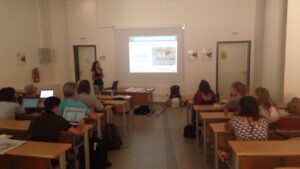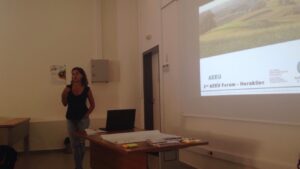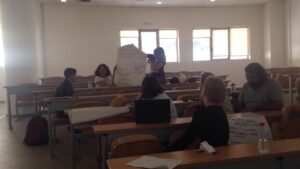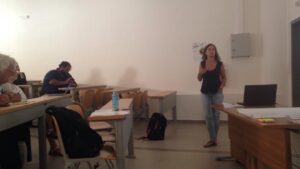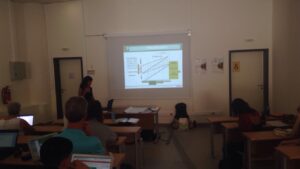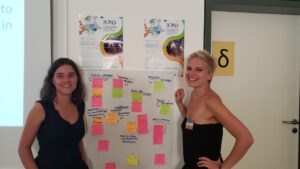Agroecology Europe Forum 2019 26-28th September, 2019, Heraklion, Crete, Greece
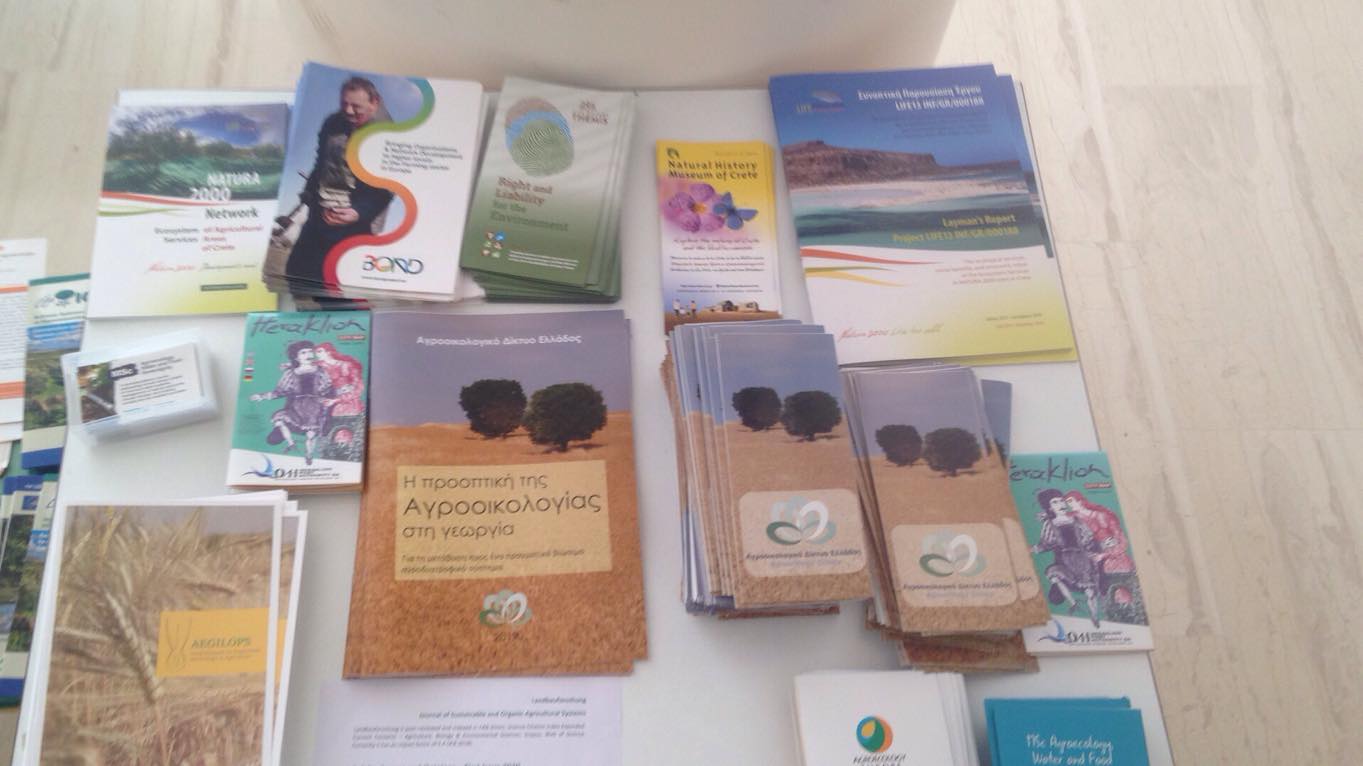
The second Agroecology Europe Forum, organized by the European Association for Agroecology (Agroecology Europe, AEEU) and the Technological Education Institute of Crete (TEI) took place in September 2019, in Heraklion, Greece.
The aim of the forum was to share results from agroecological research, practice, movements, and policies. The 180 participants arrived from 20 countries; among them were farmers, researchers, professionals, representatives from NGOs and the FAO.
Contrary to more traditional conferences, the forum offered a great opportunity for creating dialogue among different constituencies and actors. The participants were invited to discuss problems and possible solutions in the field of agroecology in a World Café event; and the thematic workshops introduced initiatives from science, practice, and movement. During the field trips, participants were introduced to traditional olive growing and processing methods and two innovative food and seed-producing cooperatives also active in environmental education.
Two of the BOND Project partners, the University of Córdoba and Védegylet Association were invited as guest speakers for different sessions; and in the name of collective action they held together a workshop on Scaling Out Agroecology, based on the findings from the BOND Project.
Cordoba University also participated in Session 5, about “Certification issues and Community Supported Agriculture”, presenting the project PGS (CSO2017-85660-R), financed by the Spanish Ministry of Economy, industry and competitiveness. Through a participatory design process and development, PGS project aims to support the development of a Spanish Participatory Guarantee System network, and reinforce the development and sustainability of these social innovations related to food confidence-building and local food communities.
Védegylet Association was represented by Lili Balogh and Katalin Réthy, who presented the methodology and initial results from the research “Mapping agroecology in Hungary in the “Mapping agroecology” workshop. The mapping project carried out with the support of Agroecology Europe and the contribution of ESSRG ; is unique in Europe due to its qualitative methodology. Final results will be presented at the end of November at the first Agroecology Conference in Hungary co-organized by Védegylet, ESSRG, the Hungarian French Institute, the Dutch Embassy, and other organizations.
The workshop organized by the BOND Project Partners on Scaling out Agroecology started with two presentations: first the barriers and strategies to foster collective action in Europe, to strengthen family farming and Agroecology was presented by Mamen Cuéllar-Padilla (Research group on Agroecology, Food Sovereignty and Commons– Cordoba University, Spain) and Irene Iniesta Aranda (ICTA, Barcelona, Spain), followed by Nikki Rose’s presentation on collaborating with Sustainable Community-Based Tourism Initiatives.
During the workshop and through participatory techniques, participants were invited to reflect and discuss the barriers they identified in their territories to scale out the agroecological principles; succeeded agroecological initiatives they knew related to the scaling out and, the recommendations to facilitate the challenge of the agroecological scaling out.
The six recommendations were the following:
- Sharing and co-constructing knowledge taking into account the power dynamics. Share information and experiences to co-produce strategies to foster the scaling out of Agroecology. Foster local networking to do so.
- Education and communication with and between different actors (youth, farmers, consumers) through different tools: environmental education, local and regional agroecological markets (allow the link, knowledge, and communication between producers and consumers).
- Local networking. Dedicate people and resources to dynamize and facilitate local networking to foster transitions. Networks must be concrete and mutually beneficial. Different tools can help such as the organization of events to share information; social media tools,…
- Linking farmers with responsible tourism
- Famous people: Alliances with public/known/famous people who can spread the message, through songs, videos and other tools (social media, f.i.).
- Engaging the medical community to spread the health effects of conventional practices on farmers and consumers
The topics of the workshops and sections in the Forum were quite diverse, including scientific and educational methodology, agronomical and rural development practices, questions of harmonizing research with practice, the ways for a paradigm shift in the food system; the situation of farmers, youth and women were also discussed. After participation in the forum, it seems like the role of agroecology in Europe is becoming more and more valuable and it is cause for optimism to see true dialogue and cooperation forming between disciplines, stakeholders and countries. The main area of focus remains how quickly and to which scale the good practices can be developed; and if European and natural institutions are able to implement these practices into policies.
